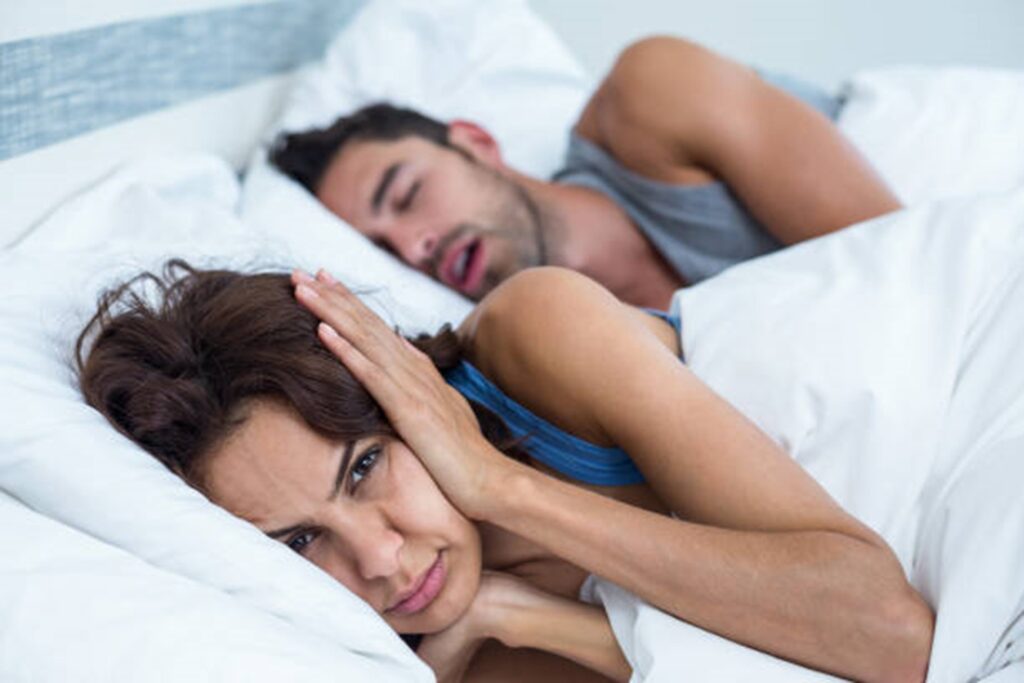Sleep & Snoring Don’t Have to Be A Problem!

We tend to take our sleeping time for granted until something (or someone) interrupts it. When that happens, the next day can be tough. Sleep loss can result from snoring or (worse) apnea and makes for a cranky disposition and poor concentration. If you can imagine that feeling every day, then you know what someone who has nightly sleep issues goes through. Studies have shown that chronic sleep loss can not only make you irritable, it can actually make you sick.
Snoring is caused by the tongue or tissues in the back of the mouth partly blocking the airway, resulting in vibration as we breathe. However, there is another sleep issue called Obstructive Sleep Apnea (OSA) that primarily occurs from a complete blockage in the airway. OSA is when a sleeping person actually stops breathing for a period of time, and those with severe sleep apnea may stop breathing dozens or even hundreds of time each night! Needless to say, this makes for very difficult daytime activities and relationships.
When we have sleep breathing issues, our entire body suffers. Because of poor respiration, our blood carries less oxygen to our heart, organs and brain. This is so critical that our brain actually will wake us to begin breathing again if low blood oxygen levels are detected. Additionally, the brain tells the heart to beat faster to pump more blood, tells the blood vessels to open up and tells muscles that control breathing to violently react to suck in more air. If this is happening many times each night, the body begins to break down. High blood pressure, stroke, depression and fatigue are just some of the results of sleep apnea. Here are some key points about sleep apnea:
- Around 1 in 5 adults have mild symptoms of obstructive sleep apnea (OSA), while 1 in 15 have moderate-to-severe symptoms.
- Approximately 18 million Americans have this condition, but only 20 percent have been diagnosed and treated.
- Menopausal and postmenopausal women have an increased risk of OSA.
- While sleep apnea is more prevalent in those aged 50 years and above, it can affect people of all ages, including children.
Treatment is often relatively simple; get the airway open and start breathing again! A sleep study is recommended and there are take-home kits available which can tell if you are likely to have apnea or simply snore. A CPAP (Continuous Positive Airway Pressure) device may be needed for severe cases of apnea but there are other less bulky and less expensive appliances that may minimize or eliminate snoring, or even mild cases of apnea. A sleep discussion with your physician or dentist is the first step in improving your sleep quality.
